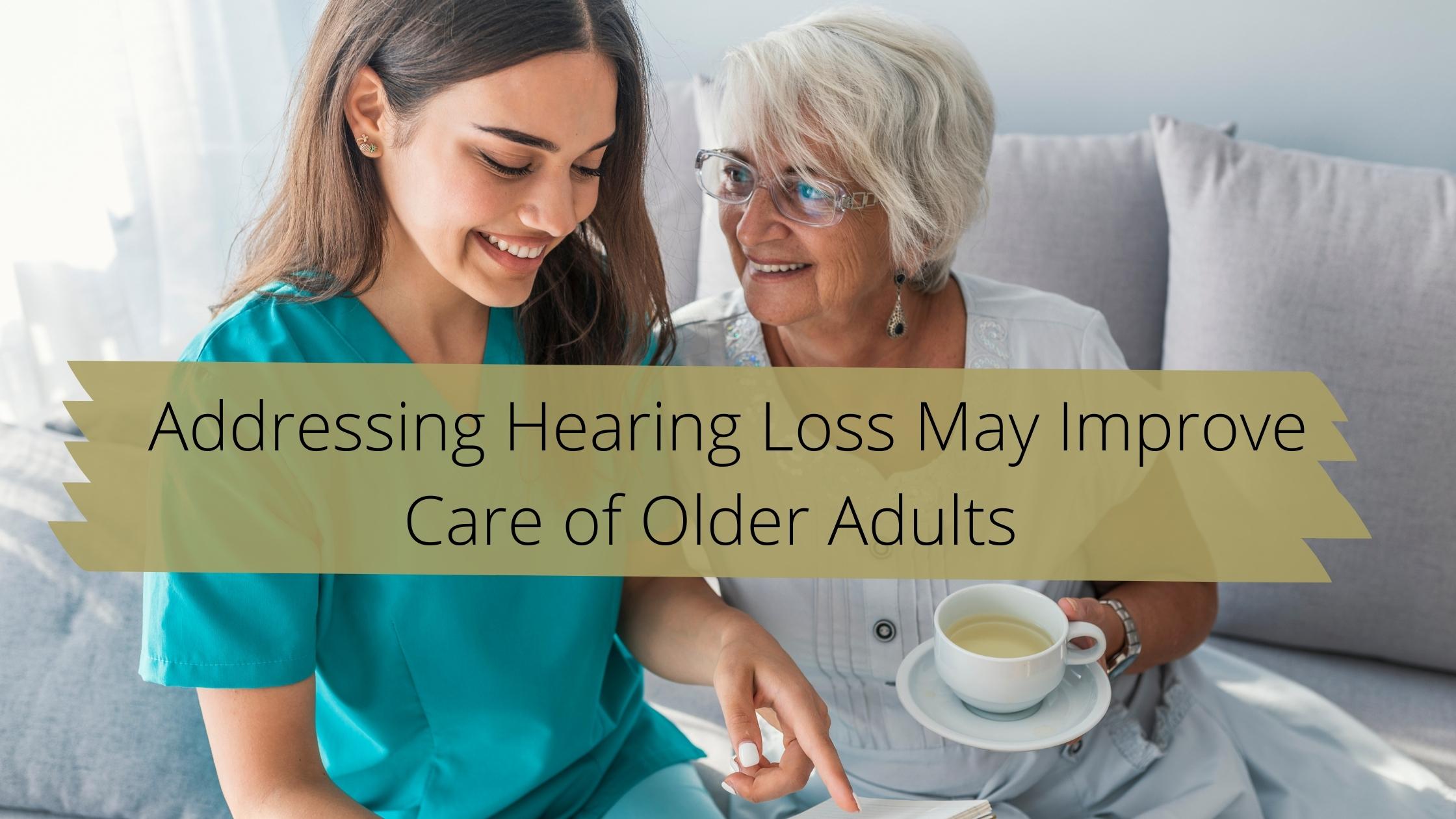Is there a senior in your life you care for, with hearing loss? Hearing loss is the third most chronic health condition faced by older people in the US. It affects one in three seniors over 65 and half of those 75 and older. The effects start in the ears but quickly affect one’s physical, emotional, and cognitive health.
Despite the seriousness of this condition, of those 70 and older who could benefit from hearing aids, only 30% have ever tried them. If someone you love is struggling with hearing loss, then it is important to diagnose it and seek treatment right away.
Presbycusis
Age related hearing loss, also known as presbycusis is the most common cause of hearing loss. While it is not necessarily a given of aging, it occurs from changes in the inner ear that occur as you age and a lifetime of listening and living. By the time a person reaches 100 years old there is a 100% chance that this individual will have some degree of hearing loss from mild to severe. Presbycusis can be caused by many factors. Some of these include:
- Genetic history
- Exposure to loud noise: A profession or hobby may cause exposure to loud noise.
- Various medical conditions: Diabetes, cardiovascular disease, and hypertension impair the flow of blood to the inner ear where hearing health is the most vulnerable.
- Lifestyle choices, such as unhealthy diet, underactivity, smoking and excessive alcohol can damage the inner ear, causing hearing loss over time.
Knowing this can help you prepare for a potential hearing loss by insisting on annual hearing tests for your loved ones as they age.
Hearing Loss in Healthcare Environments
Hearing loss is extremely common for seniors. However there have not been enough accommodations for seniors with hearing issues in medical settings. Often hospitals can be noisy with many machines beeping and multiple conversations happening at once. Now, with the common use of masks in medical settings following the instructions of a doctor or nurse can be even more daunting for a senior with a hearing disability. It is easy for a patient to misunderstand or not hear medical recommendations which can lead to serious issues and unhealed medical conditions.
Accommodations for the Hearing Impaired in Medical Environments
In medical settings accommodations for the hearing impaired include as qualified interpreters, real-time captioning (CART), assistive listening devices or visual cues. Clear medical grade masks should be worn by healthcare providers to ensure the hard of hearing can rely on lip reading and facial expression to supplement what they can’t hear. In addition, a printed report of the medical diagnosis and instructions can help the people who care for your senior make sure instructions are followed after they leave the facility.
Communication Tips for Communicating with a Senior with Hearing Loss
It is up to you to advocate for the seniors in your life. Some communication tips which can help them understand include:
- Speak slowly and clearly
- Get the person’s attention of the person before speaking
- Maintain eye contact
- Rephrase rather than repeat
- Make sure the room is well-lit
- Write out important details
- Reduce background noise
Impact of Untreated Hearing Loss on Seniors
When seniors live with untreated hearing loss, there are several things that can occur. You may not realize because these things happen slowly, but this does not negate their severity.
For instance, even a slight amount of hearing loss can start to cause cognitive decline. This strain on the brain due to hearing loss can increase the risk of dementia significantly. Hearing loss also cuts down on the amount of social interaction your senior will engage in. This is not only another risk factor for dementia but can cause less activity and less independence.
As we age an active lifestyle is key to longevity and it is up to us as caretakers, to make sure a hearing loss is addressed before it progresses into chronic illness.
The Benefits of Hearing Aids
While there is no cure for presbycusis, hearing aid can amplify the sounds struggled with to make it easier to communicate clearly again. These tiny devices come with many different features and in many different styles to fit your seniors’ specific needs. To find out more, schedule a hearing exam today!

